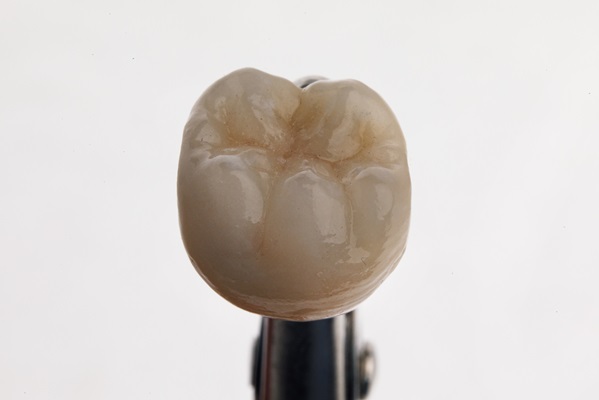Are Dental Implants Permanent Restorations?

Dental implants are among the most popular missing teeth replacement options available in general dentistry. They are the only oral prosthetics that replace missing teeth and their roots, which means they preserve bone tissues in the jaw. Bone tissue loss typically takes place when teeth fall out due to the bone tissues not getting the stimulation that they need to be healthy.
Implants are permanent restorations and are designed to last a lifetime. They replace teeth roots, and the restorations placed on them replace lost teeth. Restorations like crowns, dentures, and bridges are typically attached to implants.
Replacing teeth with permanent restorations like dental implants
Implants can be used to replace individual teeth and can serve as bases for restorations like dentures, which can replace an entire dental arch. Replacing missing teeth with restorations like dental implants starts with the dentist evaluating you to determine if you are healthy enough for the surgical installation of implants. Health issues like immune system disorders or dental problems like gum disease increase the risk of complications.
Medications like blood thinners can also complicate the recovery process after the installation of implants. Dentists go over any medications that a patient is currently on and their drinking or smoking habits during the evaluation.
The thickness of a patient’s jaw is also evaluated when placing implants. Patients who have lost bone tissue in their jaw might have to get bone grafts to thicken their jawbone for implants. It takes up to three months to recover from bone grafts, and patients need to be fully healed to proceed with the surgical placement of implants. Implants are typically recommended for patients over 20. The jaw does not stop developing until then.
The procedure
The surgical placement of dental implants involves making incisions into gum tissues and drilling holes into the jawbone. Local or general anesthetics are administered at the start of the procedure.
The dentist cuts into gum tissues to expose the jawbone, and a dental drill is then used to make a hole into the jaw. The implant is inserted into the hole and held by bone tissues around it. The implant is not stable at this point, so restorations are typically not attached to the implants. The exception would be same-day implants, which are attached the same way that implants are placed.
It takes up to six months for bone tissues to fuse with the implant through osseointegration. The process makes the implant a part of the patient’s jawbone. A restoration can then be attached to the implant at this point.
Recovering after the placement of implants
Patients typically report soreness and discomfort for the first week after getting implants. Over-the-counter painkillers are often enough to address this. Patients should stick to soft and liquid foods after getting implants until the dentist gives them the go-ahead to consume chewier foods.
Frequently asked questions (FAQs) about implants
Here are the answers to some of the questions you might still have about dental implants:
1. How long does it take to get dental implants?
It can take up to six months to complete the process of getting implants. It comes down to the type of implants being used. For example, same-day implants involve placing a restoration during the initial visit, but they only serve cosmetic purposes.
The conventional way of placing implants requires the dentist to wait for it to fuse with bone tissues around it. This is where the excellent stability of implants comes from. That process is termed osseointegration, and it can take up to six months based on factors like the patient’s health. It can be as short as a few months for some people. The permanent restoration is typically placed after the dentist verifies the implant has fused with bone tissues around it.
2. What are the benefits of getting implants?
Some of the benefits people who choose implants to replace missing teeth get to enjoy include:
- Implants do not need any special care. You take care of them the same way you take care of natural teeth
- Replacing a missing tooth prevents the remaining teeth from shifting
- Implants prevent bone tissue atrophy in the jaw
- Implants can last a lifetime
- Implants provide excellent stability for restorations, making them feel like real teeth
3. Who is eligible for implants?
Implants are recommended for people with good general and dental health. Placing implants requires oral surgery, so there is always a small risk of infection.
Replace your missing teeth
Dental implants can give you a missing teeth solution that is virtually as good as natural teeth. Call or stop by our Atlanta clinic to learn more about implants.
Request an appointment here: https://atlantapamperedsmiles.com or call Pampered Smiles at (404) 891-9489 for an appointment in our Atlanta office.
Check out what others are saying about our dental services on Yelp: Dental Implants in Atlanta, GA.
Recent Posts
Dental implants and bridges can both be used to replace one or multiple missing teeth. Having multiple missing teeth can put a dent in one’s oral health. Patients who have lost a lot of teeth not only have trouble chewing but even smiling while out in social gatherings.The world of dentistry has evolved so much…
If you are missing one or more teeth, you are probably considering getting them replaced. Dental implants have become a popular option for teeth replacement. Although there are many benefits of this option, it is not necessarily the right choice for everyone. Along with meeting the requirements of what it takes to be a good…
Dental implants are artificial teeth roots that can be used to replace missing teeth. A tooth can be knocked out by trauma to the face, or it might fall out due to bone loss caused by periodontal disease or severe tooth decay.Most people will lose at least one of their teeth at some point in their…
Sometimes, an injury or severe decay can damage a tooth beyond repair. When a permanent tooth has to be removed, an immediate implant can be used to replace it on the exact same day. More people are turning to dental implants because of their durability and natural appearance. Among healthy patients, immediate implants can offer…


